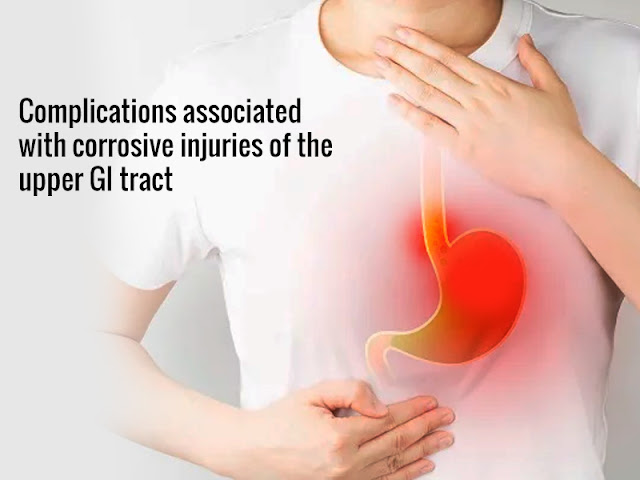Corrosive injuries of the upper gastrointestinal (GI) tract are a serious medical condition that can occur from the ingestion of strong acids or bases. These injuries can lead to a range of complications that can be life-threatening if not properly treated. The complications can significantly affect the patient's quality of life and require timely diagnosis by the best GI surgeon.
Understanding the risk of corrosive injuries in the upper GI tract
The best gastro surgeon in Kolkata stated that corrosive injuries of the upper gastrointestinal (GI) tract can cause the following.
- Strictures: Corrosive injury to the esophagus, stomach and duodenum can lead to scarring and narrowing of the affected area. This can cause difficulty swallowing, vomiting and food impaction.
- Perforation: Ingestion of acids can weaken the walls of the GI tract leading to perforation or rupture. This can lead to severe abdominal pain, fever and sepsis.
- Fistula formation: Corrosive injuries can lead to the formation of abnormal openings between different parts of the GI tract such as between the esophagus and trachea which cause leakage to other body parts.
- Bleeding: Corrosive injury can cause bleeding from the affected area. It can be life-threatening if not promptly treated by a gastroenterologist surgeon.
- Cancer: Long-term complications of corrosive injury can increase the risk of cancer of the esophagus and stomach.
Treatment of corrosive injuries of the upper GI tract
The treatment of corrosive injuries of the upper gastrointestinal (GI) tract depends on the extent and severity of the injury. The best gastro surgeon may consider the following treatment options for corrosive injuries of the upper GI tract:
- Endoscopy: Endoscopy is a diagnostic procedure used to evaluate and treat corrosive injuries of the upper GI tract. It can be used to visualize the extent of the injury, remove any residual corrosive material and dilate any strictures that have formed.
- Surgery: In cases of severe injury or complications such as perforation, surgery may be necessary. The goal of surgery is to repair any damage to the GI tract and prevent further complications.
- Nutritional support: Corrosive injuries of the upper GI tract can affect a patient's ability to eat and swallow leading to malnutrition. Nutritional support may be necessary to maintain the patient's nutritional status.
Conclusion
Overall, the treatment of corrosive injuries of the upper GI tract requires a comprehensive approach that involves early diagnosis and treatment to ensure the best possible outcomes for the patient.




0 Comments